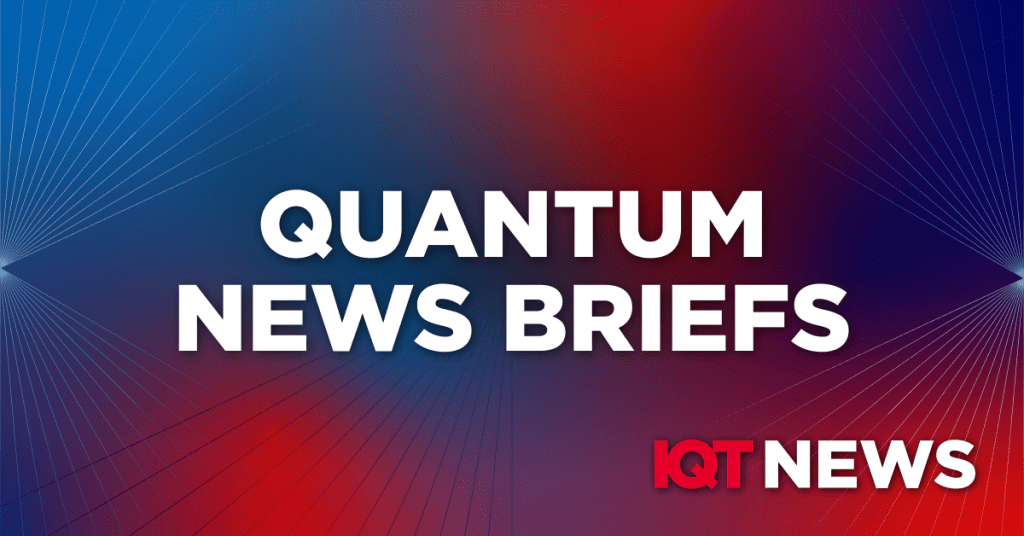News Briefs:
Quantum Machines opens quantum and HPC facility in Tel Aviv
Quantum Machines (QM), a leading provider of processor-based quantum controllers, announced on June 26 the opening of the Israeli Quantum Computing Center (IQCC), a world-class research facility that will serve the quantum computing industry and academic community in Israel and around the world. The center was built with the financial backing and support of the Israel Innovation Authority and is located at Tel Aviv University.
The IQCC is a state-of-the-art quantum and HPC center that uniquely integrates the power of quantum and classical computing resources. It is the first in the world to house multiple co-located quantum computers of different qubit types, all utilizing the NVIDIA DGX Quantum system. This offers on-premises supercomputing resources and cloud accessibility, while being tightly integrated with Quantum Machines’ processor-based OPX control system. The center also features the world’s best-equipped testbed for developing new quantum computing technologies.
The unified DGX Quantum system for integrated quantum supercomputing was co-developed by NVIDIA and Quantum Machines. DGX Quantum implements NVIDIA CUDA-Q, an open-source software platform for integrated quantum-classical computing. The system features a supercomputing cluster headlined by NVIDIA Grace Hopper superchips and also including NVIDIA DGX H100, all connected to AWS cloud platforms for remote access and to leverage additional cloud computing resources.
Lastwall Unveils Quantum Resilient Product; Mitigates Q-Day Threats
Lastwall, cybersecurity solutions provider of highly secure, identity-centric, and quantum resilient technologies, announced the launch of Quantum Shield, a first-of-its-kind quantum resilient product that protects conventional network infrastructures with the latest quantum cryptographic standards. Lastwall is backed by Blue Bear Capital, BlueWing Ventures, and 18 West Capital Partners.
Leveraging a NIST pre-approved algorithm that integrates Post-Quantum Cryptography (PQC) into the Transport Layer Security (TLS) layer of network traffic, Lastwall’s Quantum Shield significantly enhances security. Designed to be crypto-agile, Quantum Shield can rapidly update with minimal configuration changes to accommodate newly approved algorithms as NIST standards evolve.
Lastwall’s Quantum Shield is the industry’s first mass-deployable, quantum-safe TLS terminator and load balancer. Featuring an easy one-click installation, Quantum Shield seamlessly replaces existing TLS terminators and load balancers, delivering an immediate and critical foundation of quantum resilience for network data and communications. As a quantum-hardened network endpoint, Quantum Shield meets the highest and most rigorous standards of security, compliance, and efficiency, effectively managing network traffic and enabling the protection of conventional network infrastructure with the latest quantum cryptographic standards.
In Other News:
In Other News McKinsey Reports “Europe leads in public funding for quantum tech”
A new study by McKinsey indicates that private investment has declined, while public investment in quantum technologies has surged.
In 2023, 1.71 billion dollars were invested in start-ups, a decrease of 27 percent compared to the all-time high of 2.35 billion dollars in 2022. In contrast to the private sector, public investment increased by more than 50 percent compared to 2022 and accounted for almost a third of all investment in quantum technologies. A number of countries, led by Germany, the UK and South Korea, have announced significant new funding for quantum technology development, bringing the total amount of public funding to date to around $42 billion. This report also underlines the constant demand for developments in quantum technology – confirmed by the fact that scientists from EU institutions are the most frequent contributors to quantum-related publications.
In October 2023, the European Commission identified quantum computing as one of four critical technologies requiring further consideration, alongside artificial intelligence, biotechnology and advanced chips. In December 2023, the EU Member States therefore signed the European Declaration on Quantum Technologies. This declaration underlines the strategic importance of quantum technologies for strengthening the EU’s scientific and industrial competitiveness.
In October 2023, the European Commission identified quantum computing as one of four critical technologies requiring further consideration, alongside artificial intelligence, biotechnology and advanced chips. This leaves the door open for additional action in the future. Although the timeline for the review’s impact is uncertain, Europe cannot afford to delay.
In December 2023, the EU Member States therefore signed the European Declaration on Quantum Technologies. This declaration underlines the strategic importance of quantum technologies for strengthening the EU’s scientific and industrial competitiveness.
While China and the United States have so far dominated public investment in quantum technologies, new announcements from Germany, the United Kingdom, South Korea and India ensure a more diverse global QT development landscape in 2023
The most important contents of the study at a glance:
- Enormous progress of quantum technologies worldwide
- Europe leads in public investment and academic publications
- Quantum technologies in Europe could generate billions of euros in value
- A public ecosystem and clustering should be pursued to spur innovation
- European Commission strengthens European infrastructure plans for quantum technologies
